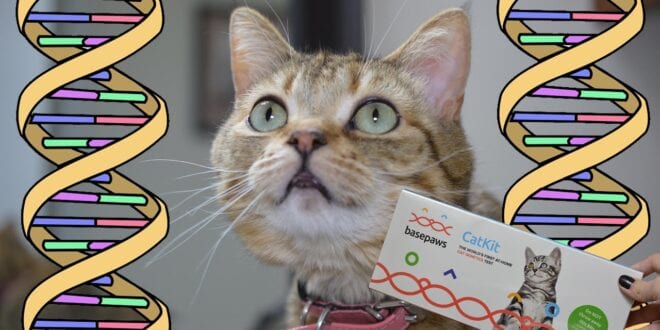The latest hype of DNA testing has taken the public by the storm. People are naturally curious about their ancestry and the popularity of such tests just seems to grow. Now the practice of testing DNA has spread to pets, more precisely, cats. Testing pets is not new, dog breeders have been doing this for decades to prove the purity of their litters, but cats seem to be left out of this trend. At least, they used to be. Cat owners are testing their furry friends more and more for various reasons, from pure fun to find out the genetic health risks.
Domestication of dogs and cats
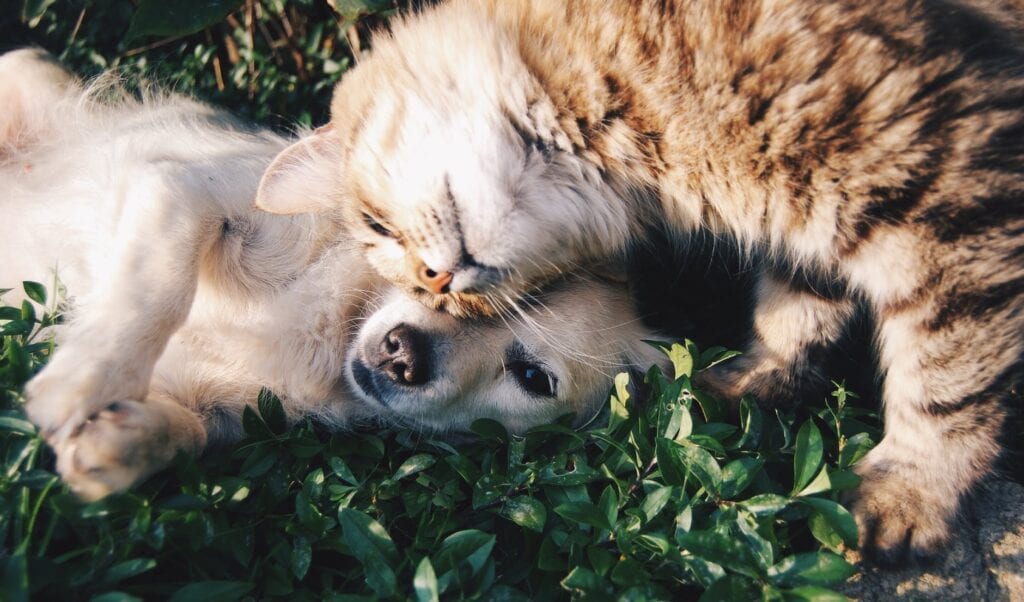
First dogs have domesticated approximately 40,000 years ago, and since then they rarely left humans’ side. Dogs were bred to fulfill certain tasks like guarding and shepherding making them perfect to live alongside humans. Today, we have very distinctive dog breeds, with their unique physical and intellectual characteristics that they are able to pass on to their offspring.
With cats, things are a bit different. First, cats were never fully domesticated by humans. They simply started hanging around about 8,000 years ago, and they never left. Well, some of them. Others stayed for some time and left Cats domesticated themselves to a degree that they feel comfortable with. There are very few cat breeds today since humans started to breed them fairly recently, about 200 years ago. Statistics say that 90% of all cats are mixed breed, and most of them are characterized as “house cats”. Cats had, and in many parts of the world still have, their role in humans’ lives, like keeping rodent numbers under control. However, cats were never trained to do specific tasks, and they have kept this unique feature to this day. So, the main purpose of having a cat nowadays is companionship.
Cats’ DNA tests
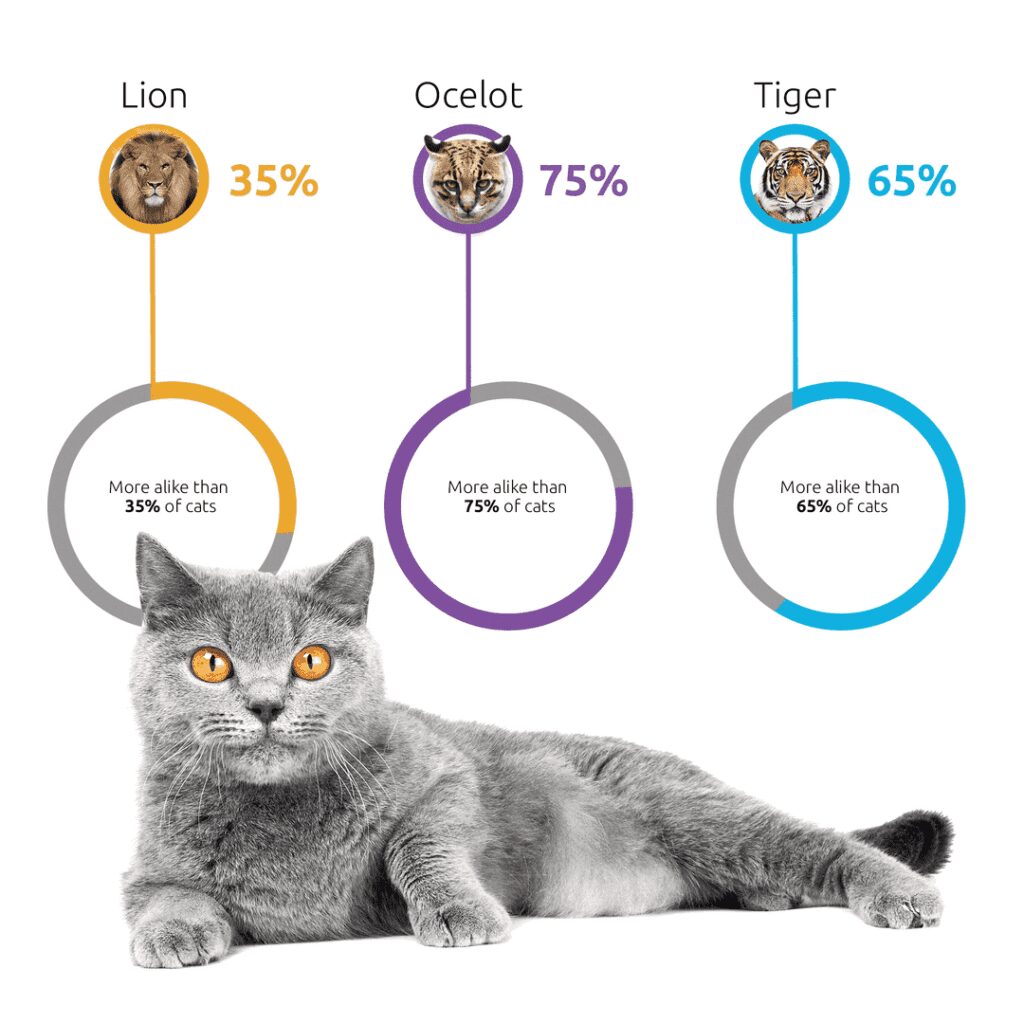
Clearly identifying a cats’ DNA profile might be impossible, or it would just come back as a house cat. However, many pet parents want to test their cats for health reasons. To do this, first, you need to order a DNA kit for cats. Then, take a cotton swab from the kit and keep it in the cat’s mouth for a few seconds making sure that it is soaked with saliva. Store it in one of the containers form the kit and send it. After 8 weeks you’ll get the results via email. It needs to be mentioned that pets’ DNA testing is a highly unregulated field with many unknown details kept under wraps. To go with one of the reputable companies, click here.
Test results
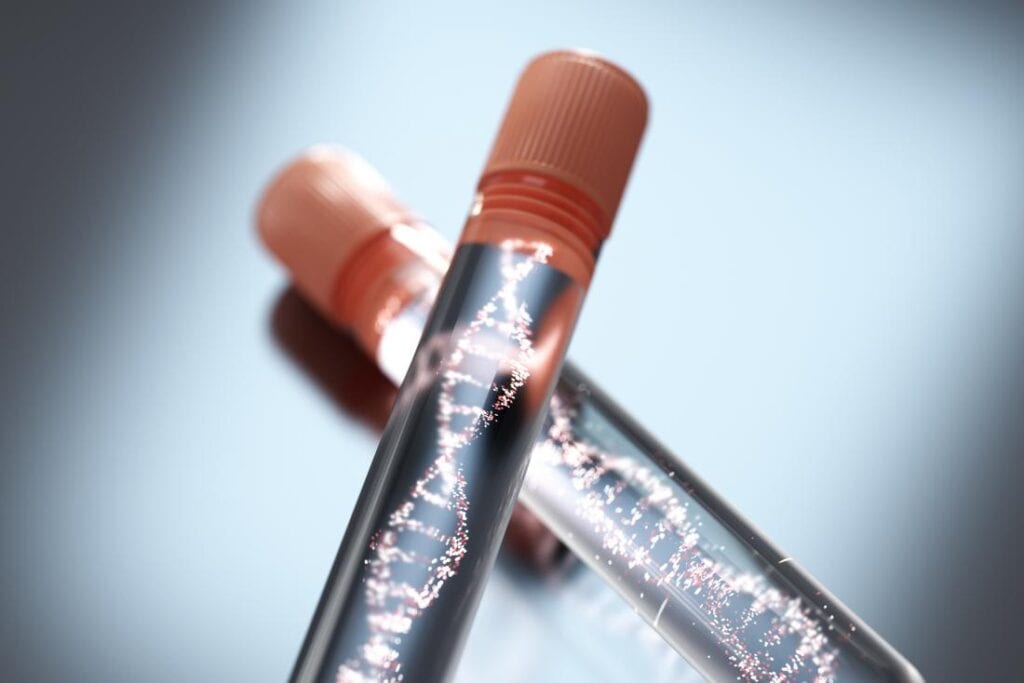
Since there are only about 40 recognized cat breeds in the world most of them are “mixed breed”. To better explain this, we will make a parallel with dog breeds. When you test your dog for DNA you will find out whether or not your pet is purebred or a mix of certain breeds. Actually, you will get results of exactly which breeds your dog is a mix of. With cats, think in reverse. Results of the DNA testing will tell you whether or not your cat shares many genes with purebred ones. “Have cat breeders developed a breed from a gene pool that my cat has been part of at some time in the past?”, is the question to ask. So, the best you can hope for is to find out if your cat has been a part of the family from which purebred cats developed.
Further, you will be able to find out the region of the world your cat is most connected to. DNA results around the globe are compared in order to find similarities, thus determining the common gene. This is one of the simplest results that you’ll get that are very easy to understand. Markers used are not revealed by the testing agencies, so we can not go into depth on how exactly the cats’ heritage is identified.
Wild genes
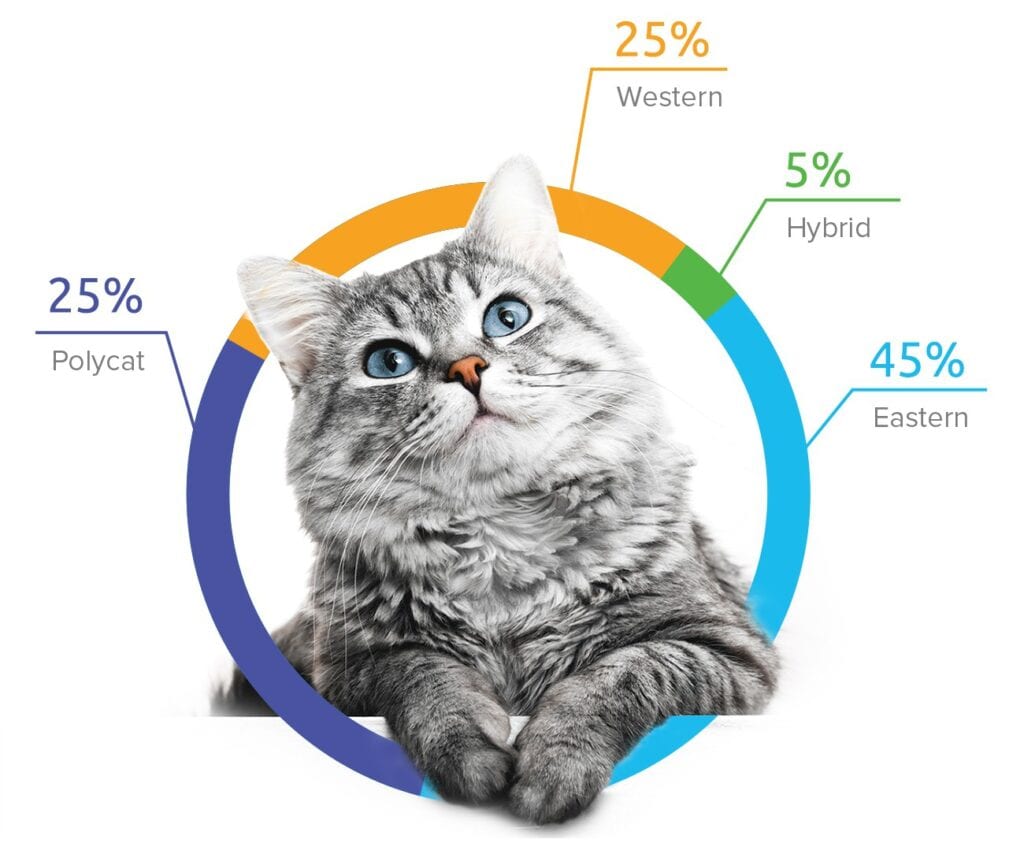
Is your cat a distant relative of tigers or jaguars? This is one of the most common questions asked by pet owners. There is something exotic in knowing that your cat shares genes with wild cats which makes her even more special, right? Well, this part shouldn’t be taken so seriously. All it means is that your cat’s ancestors at some point in time, long, long time ago shared some common genes with wild cats. Is your cat partly puma? As much as your goldfish. Still, you have to admit it’s fun to find out this trivia.
Genetic diseases
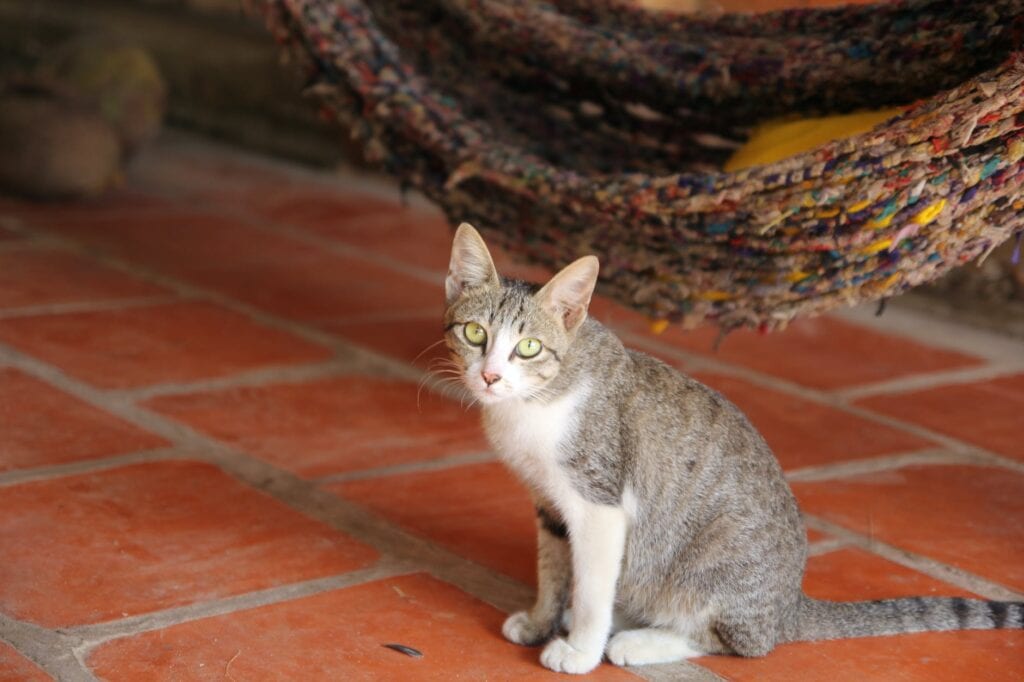
This is the main concern, and often the main reason, pet owners do a DNA test in the first place. Before we explain what it means, please do not panic if you got the results that your cat has some disease markers. If you found out that your pet has a marker for, let’s say diabetes, this does not mean that your cat will develop the disease in the future. Scientists are constantly comparing the results, and this simply means that this gene was seen in cats that have diabetes, but no one can tell you whether the gene was the cause or a simple coincidence. Not even the vet can tell you this. Your cat might get the disease or not, and it might have nothing to do with the genes. So, please do not lose your sleep over this.
Should I splurge on a DNA test for my cat?

Yes, if you previously understand that it is a field not fully examined, and the science behind it is still in its first stages of development. It is considered to be a novelty, so doing it for entertainment purposes and possibly finding out a few fun facts it totally understandable. The DNA industry claims that the main purpose of having the test is to bond with your pet, even more, that’s it. Having high expectations like whether or not your cat comes from the Bengal tigers will most definitely leave you disappointed.
 Imagup General Magazine 2024
Imagup General Magazine 2024
